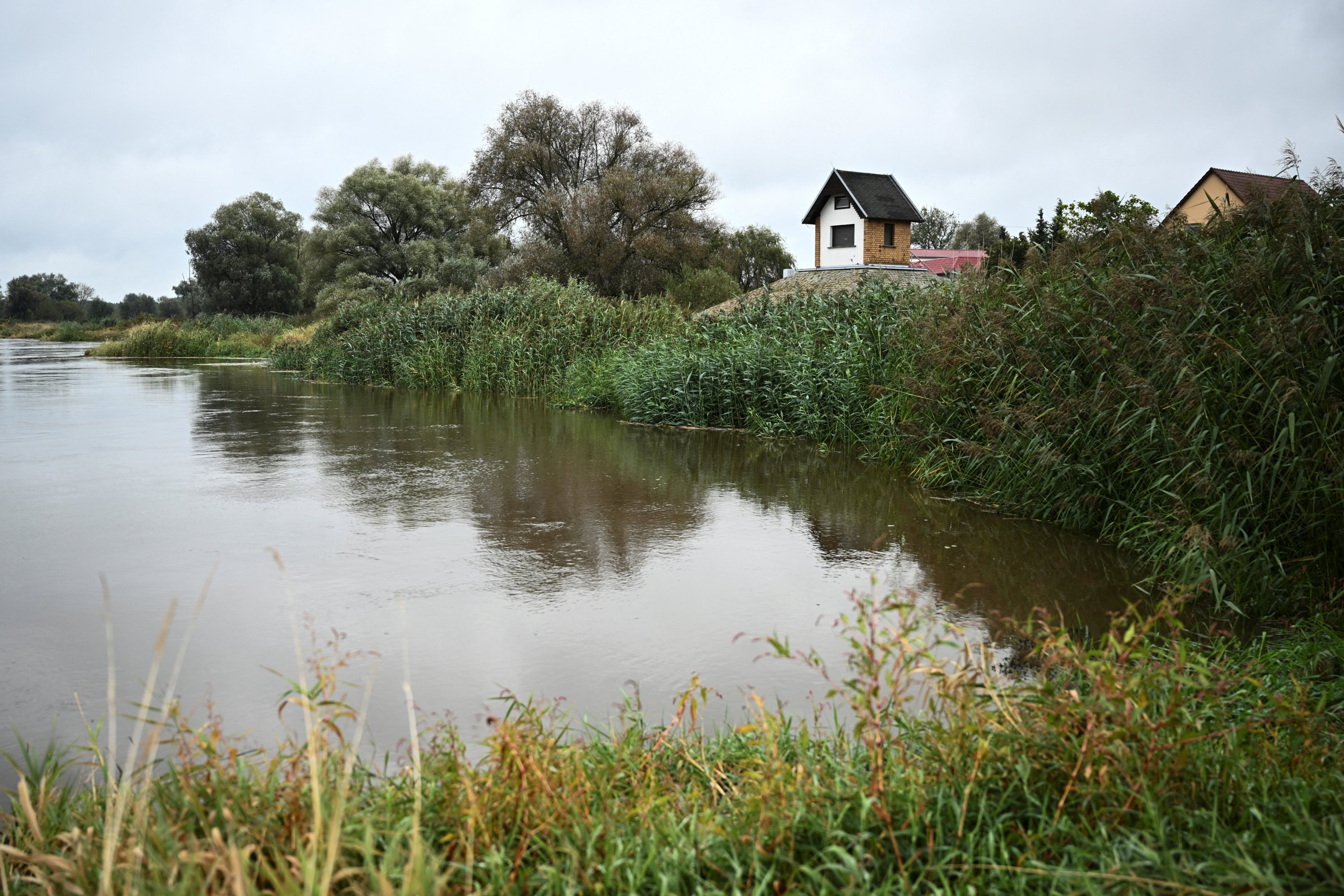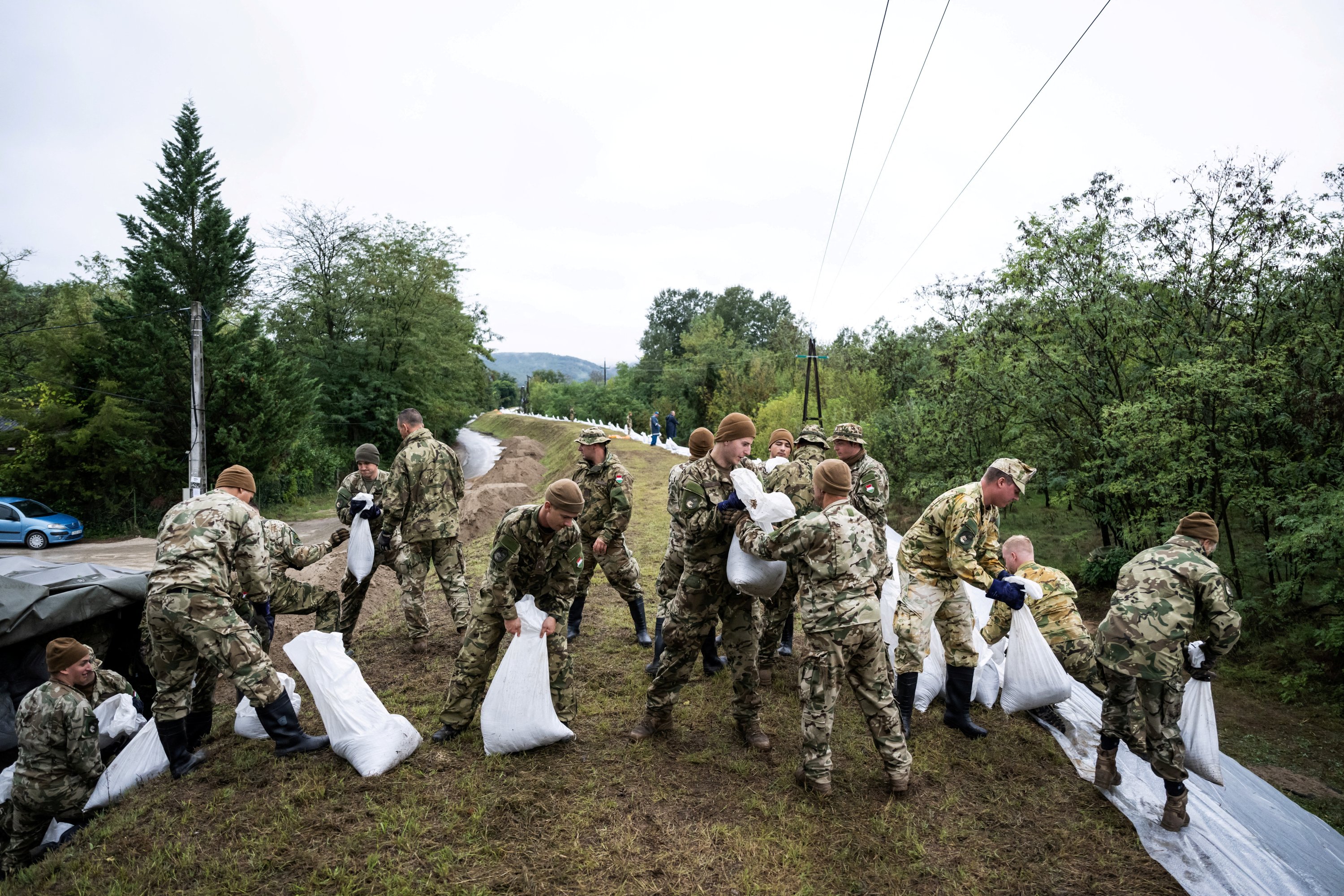[ad_1]
The death toll from a storm, torrential rain, and floods has risen to 15, with thousands more displaced in parts of Eastern and Central Europe.
Storm Boris has caused extreme rainfall in Romania, the Czech Republic, Poland, Slovakia, Hungary, southern Germany, and parts of Austria in recent days.
In eastern Romania’s Galati County, heavy rains have resulted in widespread damage, affecting about 5,000 homes and leaving at least 25,000 people without power.
Romania’s Department for Emergency Situations has confirmed the recovery of six bodies, including three older women and one man over the past two days.
Romanian President Klaus Iohannis expressed concern, stating: “We are once again witnessing the effects of climate change, which are increasingly prevalent on the European continent and leading to tragic consequences.”
In different parts of Romania, rescue teams have saved hundreds of people.
“This is a disaster of immense proportions,” Mayor Emil Dragomir of Slobozia Conachi, a village in Galati, was quoted as saying by The Guardian. The village reportedly had 700 flooded homes.
In the Czech Republic, heavy rains and floods have primarily affected the northern region, with over 50,000 homes losing power.
Authorities reported one fatality in the Czech Republic and mentioned that seven people were missing, according to The Guardian.
Flood risks continue to be critical for rivers like Odra, Opava, Branna, and Novohradka, especially in Jeseniky and Pardubice, as noted by Radio Prague International.
Although water levels are decreasing in the upper river courses, the flood wave is moving downstream, posing threats to lower areas like Uhretice and Chroustovice.
Prime Minister Petr Fiala stated, “Evacuations are in progress in Opava, Krnov, Ostrava, Jeseník, Frydlantsk, and other locations. Over 12,000 individuals have been evacuated. A state of emergency has been declared in Frydlantska.”
He further emphasized the risk of water and food contamination during floods, urging citizens to maintain hygiene, consume only bottled water, and avoid using flooded food.
Disaster zones
Austria has also been severely impacted, with 24 villages in Lower Austria declared as “disaster zones” and evacuation orders issued, while the death toll has risen to three, according to Vice Chancellor Werner Kogler.
Kogler expressed condolences for the recently deceased, stating that the situation in flood-affected areas remains critical, and urged the entire country to follow the instructions from emergency services.
He mentioned that the Austrian Armed Forces are assisting in storm-hit regions, with 2,400 soldiers prepared to provide support in various tasks.
One fatality was reported in the Klodzko region of Poland, bringing the death toll in the country to five, according to Prime Minister Donald Tusk.
Tusk has allocated funds for emergency aid and flood damage removal and is applying for European aid through the Minister for European Affairs.
He mentioned that additional forces have been dispatched to areas at risk, and preparations are being made to declare a state of natural disaster.
Source

Emil Kovács graduated from the Journalism program at Eötvös Loránd University in Hungary. During his journalism studies, he focused on data journalism, investigative reporting, and multimedia storytelling. He gained experience by writing for the university’s student newspaper, where he gained attention for his articles on social issues. After graduation, Emil began working as a reporter at a European news agency, where he conducts in-depth analyses of international news and current events.




